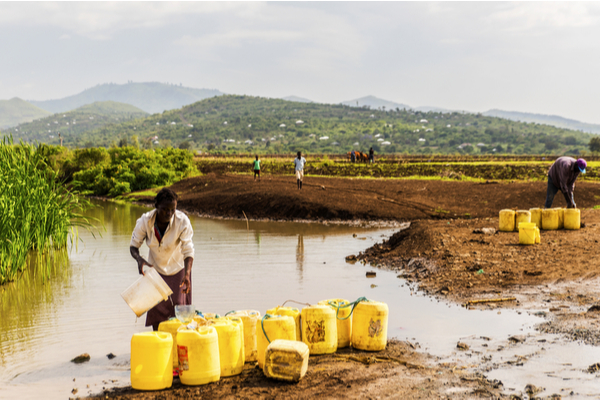Named Miriam’s Well, taken from the biblical story, Alumor’s lightweight apparatus purifies drinking water for pennies.
By Pesach Benson, United With Israel
It’s one of life’s bitter ironies that some places in the world are blessed with water yet suffer from an inability to purify it for safe drinking.
Water collected from places such as streams, lakes, lagoons and reservoirs can be contaminated with bacteria, feces, dirt, metal particles, or chemicals such as pesticides.
The risks are formidable. Drinking untreated water carries the risk of diseases such as diarrhea, dysentery, hepatitis, cholera, typhoid and even polio. According to the World Health Organization’s web site, at least 2 billion people get their drinking water from contaminated sources, resulting in 485,000 deaths annually.
But Alumor, an Israeli startup based in Qiryat Tivon near Haifa, seems to have found a cost-effective solution for millions of people in developing countries without access to filtered tapwater.
It’s a device called Miriam’s Well, named after a rock that the Bible describes as miraculously providing water for the Hebrews during their 40 years of wandering in the desert.
Miriam’s Well is a lightweight solar-powered apparatus that uses an ultraviolet LED light to kill parasites and viruses while a filter removes everything else. The only maintenance necessary is to rinse off the filter periodically. Miriam’s Well can purify one liter of water in 30 seconds, using just four watts of electricity.
This translates into a liter of purified water that meets the standards of the U.S. National Sanitation Foundation — for the cost of half of one cent.
“It really is a miracle,” David Waimann, Alumor’s head of development, told No Camels.
He added that the system precludes the need for larger purification systems that require professional maintenance, parts, and more complex power sources.
The company aims to sell 250 million devices at cost by partnering with non-profit organizations already operating in developing countries.
Alumor is currently in a pre-seed stage and has received a grant of $142,000 from the Israel Innovation Authority.
